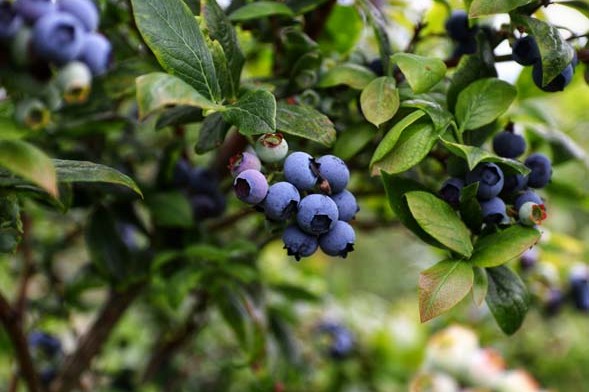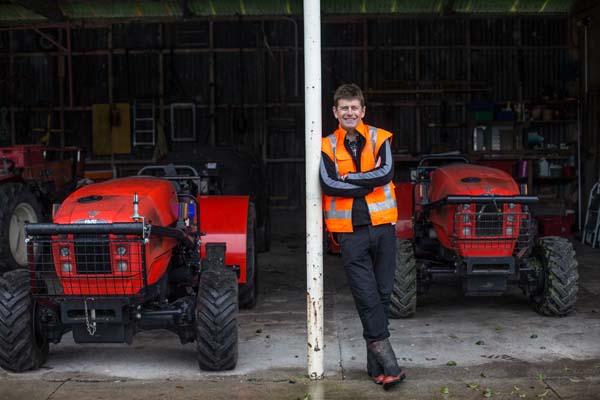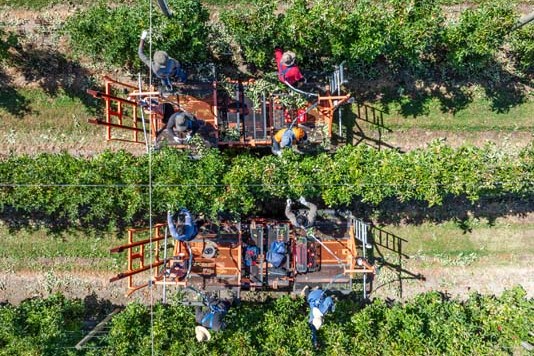A farm’s own hydro power station has turned around the energy consumption of the operation. By Anne Hardie.
 Water from a river running through Harwoods’ farm in Golden Bay is diverted to their hydro-electric power station to reduce the farm’s power bill and provide a substantial income stream to their business.
Water from a river running through Harwoods’ farm in Golden Bay is diverted to their hydro-electric power station to reduce the farm’s power bill and provide a substantial income stream to their business.
The power station has been operating for several years now and Nigel Harwood says it has performed beyond expectations in both returns and generation. It cost $1.8 million to build the station which has three turbines capable of driving their pivot irrigation on the dairy farm as well as earning $210,000 by exporting surplus power to the local power company.
“It brings quite a bit of power for irrigation, and in winter we export everything.”
Though the Takaka River borders the dairy farm, it has limitations due to the Cobb Hydro Station further upriver generating on the spot market. For their own hydro scheme they divert water from the smaller Waitui River that runs through the farm. The Harwoods initially planned to install just one turbine to help cover electricity costs on the dairy farm and then Network Tasman upgraded its substation at nearby Upper Takaka. That prompted two more turbines and the opportunity to add another income stream to the business.
The farm was buying electricity on the spot market before building the hydro operation and generally prices are high in winter, lower at the beginning of irrigation and then the price climbs again as the water levels drop in the southern hydro lakes. Now they are making their own electricity, they can sell at the higher prices in winter when they have plenty of water going through the power station and aren’t using it for irrigation. They still pay about $15,000 to buy power through summer for irrigation on the dairy farm, which is about half the costs without the hydro scheme and the overall income of $210,000 dwarfs that cost.
The family has multiple income streams without electricity, spread between the main farm at the base of the Takaka Hill through to a large, isolated finishing property on the northwest coast of Golden Bay. All up, they milk up to 900 dairy cows and run about 3,300 ewes, 750 Red hinds, 70 breeding cows, 200 bulls and finish 8,500 lambs.
Hydro into the mix meant familiarising themselves with the electricity industry and learning a new language that entailed kilowatts, negative pressure waves and transient pressures. It involved the purchase of Francis turbines from China with generators attached to convert the energy into power and computers to control the speed and automatically alter the turbines to suit the water level. When they laid the pipe, they also put fibre optic cable into the trench so that the intake computers talk to the generators and signal them to ramp up speed if there’s more water coming through and then close the gate as they reach full speed.
The hard yards have been done and now it is a low-input operation where they pay a knowledgeable person $500 a month to keep an eye on the power station.
Nigel says diversity is becoming increasingly important for farmers as liberal democracies around the world make it harder and harder to farm for food production.
“I’m watching local and central government making it harder and harder to farm. And it’s happening right around the world – coming from liberal democracies leading the charge against farming and I think it will end in tears somewhere.
“This is where having diversity kicks in. If I look at this farm, I can make higher returns from power and aerial transmission sites. We will follow the trend that Government is pushing and plant more trees into the carbon market. We have pine trees and regenerating blocks and are looking at letting large areas revert. If they keep putting more and more pressure on, and the carbon price keeps going up, it will make sense at some stage to plant pine trees on dairy farms. That will be swapping food production for trees.”
Theoretically, hydro schemes fit well with the Government’s push toward renewable energy, though in reality, Nigel says there is little encouragement to establish them. Yet he says hydro has little effect on the environment as water is diverted into the turbines and back out again into the river.





